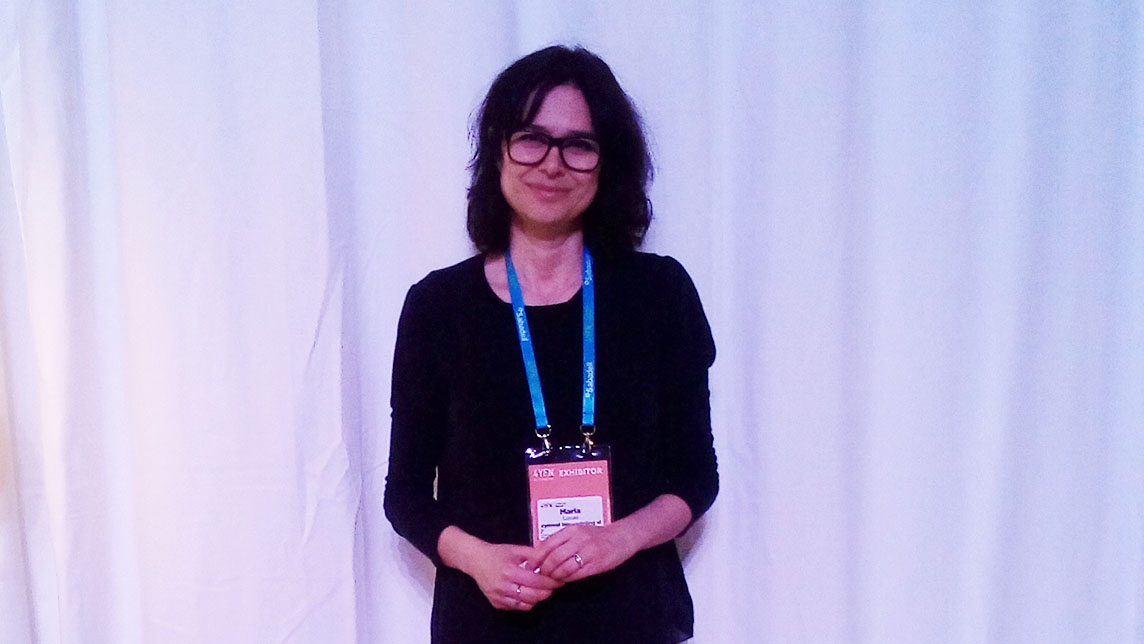Barcelona-based Zymvol produces computer-designed enzymes and helps clients search for specific enzymes. Using enzymes is one of the three ways in which any product can be transformed during industrial processes. The other two methods involve using chemistry or natural means, such as turning milk into yogurt or cheese through fermentation.
Zymvol was founded by CEO Fatima de Lucas, Chief Scientific Officer Emanuele Monza – both chemists with training in computational chemistry – and Chief Technology Officer Víctor A. Gil, a cyber scientist with a PhD in Biomedicine. All three were formerly researchers at the Barcelona Supercomputing Center, where they had spent between six and nine years working on the designing of enzymes through computer simulation.
The trio eventually realized that despite the potential their work held for industries, there were not many researchers working on enzyme creation. For this reason, they started Zymvol in April 2017 after spending half a year developing the business idea.
By 2018, the company had broke even with sales of around €150,000. As of February 2019, Zymvol had secured contracts with companies in Spain, Belgium, Austria, South Korea and Brazil.
"The sector is experiencing an exponential growth right now. We believe that technologies like ours will not only allow a few fortunate ones to design customized enzymes, but give all industries the opportunity to do so," de Lucas told CompassList in an interview. "The reason is that this technology is up to 10 times more economical than what has been used until now, which represents very important savings for industries."
Enzymes democratization
The global enzymes market size is forecast to reach US$19.09bn by 2025, based on a CAGR of 8.9% from 2014, Grand View Research says. Growth is expected to be driven by the rising demand for industrial enzymes not only in the detergent and wastewater treatment industries, but also in the food and beverage and animal feed industries.
Zymvol's work has been made possible by the technological changes that have occurred in recent years, including at the experimental stage. De Lucas explained: "Today, it is possible to change a protein in a micro-organism very easily. Advances in DNA, recombinant DNA and microbiology technology make it very easy for us to offer custom-designed enzymes that can be tested very quickly in the laboratory. Ultimately, all you need is a specialized technician and a computer.” Besides the three co-founders, the startup has one staff member and a technician, and intends to hire more staff.
The company uses molecular simulations of both classical and quantum types as well as high-performance computer, machine learning, and bioinformatics. The company is currently only focusing on the use of enzymes as a catalyst since they can also be used as drugs.
Enzymes, most of which are proteins, are produced in living cells. Their functions are regulating the chemical processes of organisms and catalyzing biochemical reactions that are thermodynamically favorable.
This means that "enzymes have evolved to be in an organism, at a temperature and under specific conditions," de Lucas said. "And when you put them in a reactor, things change a lot. Therefore, to be able to use them properly, it is necessary to modify them to fit the environment of the reactor."
Pioneered by Frances H. Arnold
For many years, such modifications were carried out in the laboratory, replicating natural processes at a faster rate.
"The use of enzymes in the market has grown exponentially in the last 20 years. [Lab-based enzyme modification] is, however, still a highly expensive technology that needs a long processing time and does not always provide accurate results," de Lucas said.
American scientist Frances H. Arnold pioneered the use of directed evolution to design enzymes that can perform new functions or work more effectively than natural enzymes. She was the first scientist to apply the directed evolution strategy to optimize enzymes in 1993, thus changing the industry and winning her the Nobel Prize in Chemistry in 2018.
Following in Arnold's footsteps, Zymvol developed software that allows enzyme optimization using computers. In this way, clients get a customized solution, with an enzyme designed specifically to meet their needs at a much lower cost and in a short time.
"By applying the evolution system in the laboratory, we can give them a set of enzymes to test in the laboratory that would take substantially fewer rounds of testing compared to the number of tests they would have to perform previously," said de Lucas.
Instead of testing thousands or millions of enzymes, clients only have to try hundreds and that greatly reduces their costs. At the technological level, Zymvol has evolved from filtering and analyzing a few hundred enzymes a day to 50,000 enzymes per day currently. "Our goal is to reach a million enzymes a day in one or two years," she said.
Zymvol's business model
Zymvol works with companies from very different sectors. It optimizes enzymes for detergents – one of the most common uses of enzymes in industrial processes, for chemical compounds production and for pharmaceutical ingredients production. The possible applications of enzymes are enormous, from the pharmaceutical and chemical sectors to the F&B and cleaning ones.
"Currently, we are purely a services company," de Lucas said, commenting on Zymvol's business model. "The client comes with a problem, we solve it and give the client the required enzymes. The client has exclusive use of the enzymes, but we keep the generated knowledge. And this is non-negotiable."
Going forward, the startup plans to switch part of its business from service provision to product development. De Lucas said: "We have started developing our own enzymes in collaboration with interested companies, which may later be interested in the resulting products. That way we only have to license the enzyme without having to worry about enzyme production and marketing."











